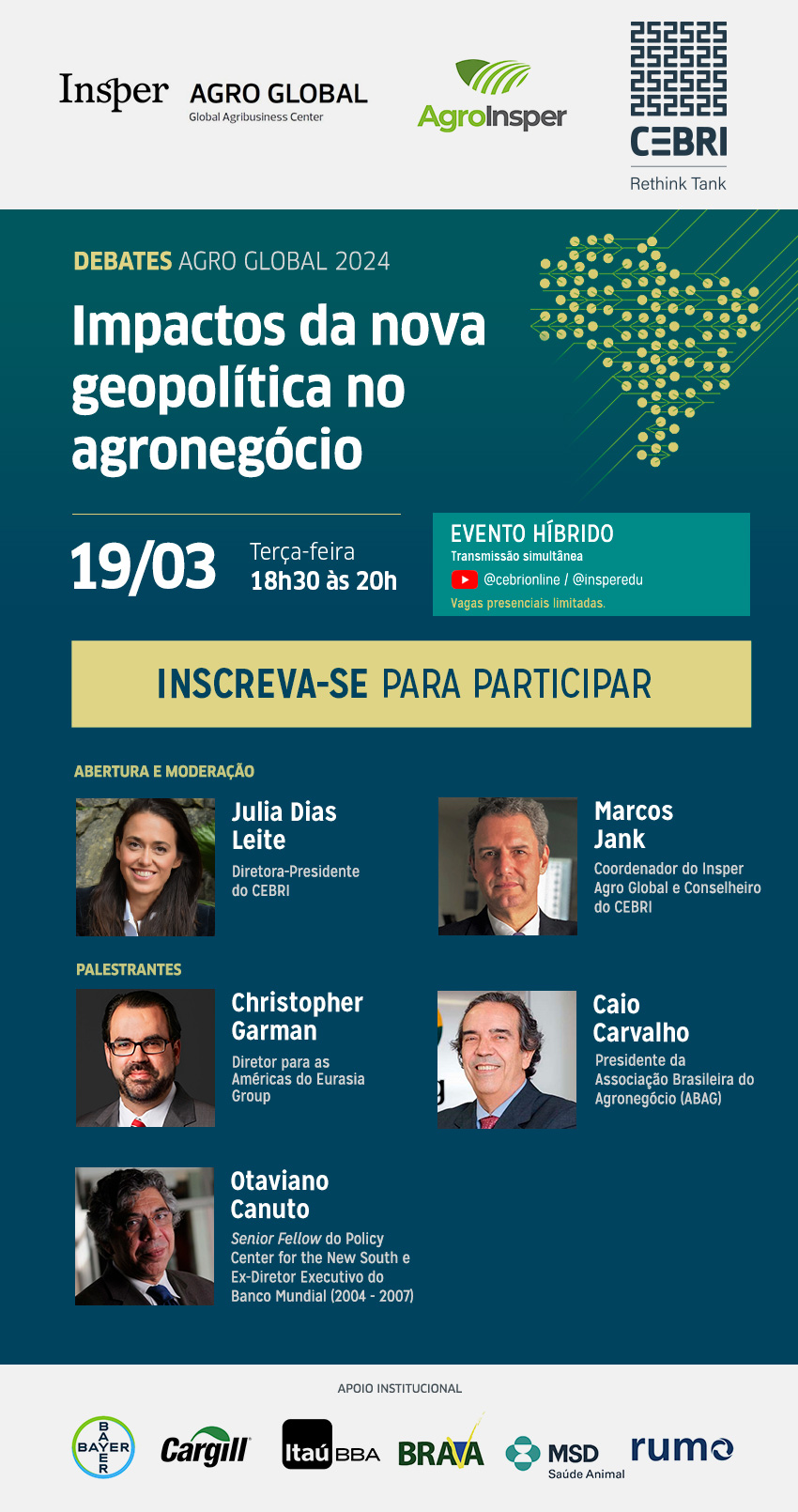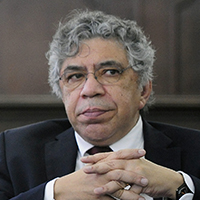As the rivalry between China and the United States intensifies, and conflicts unfold in Europe and the Middle East, global stability becomes increasingly threatened. Geopolitics plays a crucial role in various economic aspects, potentially affecting the landscape of Brazilian agribusiness, and directly influencing production, trade, and sector competitiveness.
As a major producer and exporter of agricultural commodities, Brazil is subject to a series of dynamics capable of triggering opportunities and challenges. On one hand, strategic alliances and trade agreements make it possible to open new markets and increase demand for Brazilian agricultural products. On the other hand, regional political instabilities or trade disputes between major powers may result in the adoption of trade barriers, tariffs, and restrictions that harm the country's agricultural exports. Thus, understanding and carefully analyzing geopolitics are essential for Brazilian agribusiness actors to anticipate and mitigate risks while taking advantage of emerging opportunities in the global landscape.
To shed light on the challenges and consequences that agribusiness faces in the face of this unstable international scenario, we have gathered Christopher Garman, Director for the Americas at Eurasia Group, Otaviano Canuto, from the New South Center think tank and former Executive Director of the World Bank, Caio Carvalho, President of the Brazilian Agribusiness Association (Abag), and Julia Dias Leite, President of Cebri.
As the rivalry between China and the United States intensifies, and conflicts unfold in Europe and the Middle East, global stability becomes increasingly threatened. Geopolitics plays a crucial role in various economic aspects, potentially affecting the landscape of Brazilian agribusiness, and directly influencing production, trade, and sector competitiveness.
As a major producer and exporter of agricultural commodities, Brazil is subject to a series of dynamics capable of triggering opportunities and challenges. On one hand, strategic alliances and trade agreements make it possible to open new markets and increase demand for Brazilian agricultural products. On the other hand, regional political instabilities or trade disputes between major powers may result in the adoption of trade barriers, tariffs, and restrictions that harm the country's agricultural exports. Thus, understanding and carefully analyzing geopolitics are essential for Brazilian agribusiness actors to anticipate and mitigate risks while taking advantage of emerging opportunities in the global landscape.
To shed light on the challenges and consequences that agribusiness faces in the face of this unstable international scenario, we have gathered Christopher Garman, Director for the Americas at Eurasia Group, Otaviano Canuto, from the New South Center think tank and former Executive Director of the World Bank, Caio Carvalho, President of the Brazilian Agribusiness Association (Abag), and Julia Dias Leite, President of Cebri.



66c8ab2f7b900.png)


